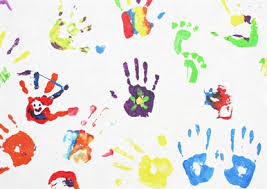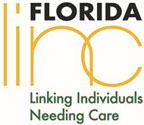Programs
Adult Mental Health
 Florida's community mental health system is completely privatized. Public funds are contracted through local Mental Health Program Offices, mostly with non-profit local Community Mental Health Centers. People who need services get them by going to those providers directly - the state mental health program offices do not provide services.
Florida's community mental health system is completely privatized. Public funds are contracted through local Mental Health Program Offices, mostly with non-profit local Community Mental Health Centers. People who need services get them by going to those providers directly - the state mental health program offices do not provide services.
We want publicly funded mental health services and supports to be available, accessible and accountable. We want the supports and services provided to respond to people's needs, build on their strengths, and be outcome based. In other words, people served in the public mental health system should believe they are better off because of it. Their lives should reflect that they are living successfully in their communities.
Children's Mental Health

The Children’s Mental Health Program is a coordinated network of community-based services and supports that is youth-guided and family-driven to produce individualized, evidence-based, culturally and linguistically competent outcomes that improve the lives of children and their families.
This program provides funding for in-home and community based outpatient services, crisis services and residential treatment (including psychiatric residential treatment facilities, Therapeutic Foster Care and Therapeutic Group Homes provided through joint Medicaid and Mental Health Program contracts with behavioral health managed entities and providers. The program also provides coordination and management of the Juvenile Incompetent to Proceed (JITP) program. The system requires that services are individualized, culturally competent, integrated, and coordinated. The aim is to provide a smooth transition, from children’s mental health to the adult mental health system for continued age-appropriate services and supports. These services are designed to build resilience and to prevent, severity, duration and disabling aspects of children’s mental and emotional disorders.
Substance Abuse

Southeast Florida Behavioral Health Network provides treatment for substance abuse through a community-based provider system that offers detoxification, treatment and recovery support for adolescents and adults affected by substance misuse, abuse or dependence.
Detoxification Services: Detoxification focuses on the elimination of substance use. Specifically, detoxification services utilize medical and clinical procedures to assist individuals and adults as they withdraw from the physiological and psychological effects of substance abuse. Detoxification may occur in either a residential or outpatient setting, depending on the needs of the individual.
Treatment Services: Treatment services include a wide array of assessment, counseling, case management, and support provided in residential and non-residential (outpatient) settings. Treatment services are designed to help individuals and their families who have lost their abilities to control the substance use on their own and require formal, structured intervention and support.
Services include various levels of residential, outpatient, and recovery support based on the severity of the addiction. Research indicates that persons who successfully complete substance abuse treatment have better post-treatment outcomes related to future abstinence, reduced use, less involvement in the criminal justice system, reduced involvement in the child-protective system, employment, increased earnings, and better health.
Recovery Support: Recovery Support is offered during and following treatment to further assist individuals in their development of the knowledge and skills necessary to maintain their recovery. These services include transitional housing, life skills training, parenting skills, and peer-based individual and group counseling.
Individuals who pose a significant risk to themselves or others due to substance abuse impairment can be referred for involuntary assessment and stabilization through the Marchman Act.
Child Welfare Integration

Parental substance abuse is a major contributing factor in cases of child abuse and neglect and is one of the major reasons for out of home placements. In FY 2010-2011, 56% of the child abuse allegations that were verified had indications of parental substance abuse disorders. During this same time frame, 60% of out of home placements were due to parental substance use disorders. There were also twice as many children with parents with substance use disorders in care for more than 9 months than for children with parents without indications of substance abuse
Between FY 2006-2007 and FY 2010-2011, the number of adults involved in the child welfare system due to prescription drug problems increased from 991 to 3,495 - a 253% increase. Their inability to access treatment prolongs the time to re-unification for the family and causes numerous complications meeting the expectations of their case plans
Traditionally, when child protective investigators suspect substance use or mental health disorders, they refer the parent to a substance abuse or mental health treatment program for an assessment and subsequent treatment. This practice has proven in Florida and nationally to be less than effective. Many parents do not make or keep appointments for their assessment and subsequent treatment. Because of a low percentage in engagement rates; the Department of Children and Families created a Statewide Substance Abuse Call Center Initiative. In October of 2013, SEFBN in partnership with the Department, our own SAMH Providers and the lead Community Based Care Agencies in Circuit 15 and 19 and created our own substance abuse call center pilot program. To date, the call center program has scheduled over 2,000 appointments for assessments and has offered parents access to assessment services in a more efficient manner as parents are given an appointment within 5 days of their first contact to the call center.
Family Intensive Treatment (FIT) Team
One innovative program helping families in the Palm Beaches, Treasure Coast and Okeechobee is the Family Intensive Treatment (FIT) Team. FIT teams provide intensive treatment interventions targeted to parents who are struggling with substance use, have a child aged 0-10, and have become involved with the Child Welfare system. The teams are comprised of a Master’s level (or higher) therapist, Wraparound Case Manager, and certified Peer Support Specialist who has lived experience with substance use and recovery. There are currently two FIT Team Providers, one covering Palm Beach County residents and one covering Indian River, St. Lucie, Martin and Okeechobee county residents that each focus on integration of treatment for substance use disorders, parenting interventions and therapeutic treatment for all family members into one comprehensive treatment approach. This comprehensive approach includes coordinating clinical children’s services which are provided outside of the FIT team funding; promoting involvement in recovery-oriented services and supports; providing for immediate access to substance abuse and co-occurring mental health services for parents in the child welfare system; helping parents with substance use disorders recover; promoting increased engagement and retention in treatment; facilitating program completion and aftercare; and increasing collaboration with child welfare organizations. The main goals of the FIT team are to promote the safety of children in the child welfare system whose parents have a substance use disorder; develop a safe, nurturing and stable living situation for these children as rapidly and responsibly as possible through treating the parents and family as a whole; provide relevant information to inform the safety plan; reduce the number of out-of-home placements when safe to do so; and reduce rates of re-entry into the child welfare system. Referrals to these programs are made directly by Department of Children and Families or the Community Based Care agency. For more information, please contact 561-203-2485.
Community Action Treatment (CAT) Team
There are times when children or adolescents may need more intensive mental health services and supports than traditional services to remain in the community. When that is the situation, the Community Action Treatment (CAT) team provides community-based services to youth ages 11 to 21 with a mental health or co-occurring substance abuse diagnosis with any accompanying characteristics such as being at-risk for out-of-home placement as demonstrated by repeated failures at less intensive levels of care; having two or more hospitalizations or repeated failures; involvement with the Department of Juvenile Justice or multiple episodes involving law enforcement; or poor academic performance or suspensions. Younger children may be served meeting additional criteria of need. The CAT team utilizes a team approach to care and provides a Wraparound trained case manager, Therapist, Peer Mentor, Nurse, and Psychiatrist at no cost to families regardless of insurance or ability to pay. There are currently two teams in the region, one serving the Treasure Coast and Okeechobee and one serving Palm Beach County. Upon successful completion, the family should have the skills and natural support system needed to maintain improvements made during treatment. Referrals may be made directly to each team. For more information, please contact 561-203-2485.
Prevention
Prevention Services are proactive processes which utilize strategies designed to reduce problems related to mental health and substance abuse. The measures seek to empower individuals and organizations to meet the challenges and transitions of life, by creating and reinforcing healthy behaviors and lifestyles and reducing the risks of alcohol, tobacco and other drug use… and their related issues. These strategies / measures strive to reduce individual, family, and environmental risk factors, increase resilience and enhance protective factors. The programs are evidence-based and seek to accomplish measurable outcomes. This is achieved through the cultivation of individual and community wellness via an individually focused, team or collaborative approach. The strategies’ goals are to alter and impede factors that support the development of substance abuse and mental health problems, and seeks to increase public awareness of healthy options, through information, education, and alternative-focused activities.
SEFBHN funds programs are implemented in the five counties: Palm Beach, Indian River, St. Lucie, Okeechobee and Martin counties, and address both Children and Adult Mental Health and Substance

Abuse concerns. Adult services are provided in selected locations within selected communities. Prevention Services for children and families are often provided in public schools and, also, within the community.


Florida LINC Project
Southeast Florida Behavioral Health Network is pleased to announce the partnership with The Florida Linking Individuals Needing Care (FL LINC) Project. A collaborative SAMHSA Garrett Lee Smith Act State Grant with the Florida Statewide Office of Suicide Prevention, Florida Council for Community Mental Health, the University of South Florida and the University of Central Florida. The FL LINC Project which is a 5 year grant the ME received in order to decrease suicide rates and attempts through awareness and education, support, partnership with providers in the community, and advocacy.
Project Description
The Florida Linking Individuals Needing Care (Florida LINC) Project is a partnership between the Florida Office of Suicide Prevention (SOSP), the Florida Council for Community Mental Health and the University of South Florida (USF) to innovatively enhance services to reach at-risk priority populations and ensure that young people receive needed services. The Inter-Agency Dissemination and Collaborative Network, the state suicide prevention infrastructure, will partner with up to three competitively selected applicant behavioral health regional coordinating service entities and utilize a sustainable mentorship model to continue to enhance, expand, and implement culturally sensitive, evidence-based (EBP) suicide prevention and early intervention strategies. Partnering entities will be selected based on need; prior suicide prevention experience; organizational capacity; established interagency partnerships and referral networks; community and stakeholder buy-in; and commitment to evaluation.
The goals/measurable objectives are to (a) continue to enhance the SOSP by cultivating sustainable partnerships; (b) expand the number of culturally competent trainers; (c) increase the quantity/quality of adult prevention gatekeepers; (d) utilize innovative training to increase: (i) the number of community and school personnel trained to manage crises associated with suicide, (ii) the number of youths/family members taught coping and support skills to prevent the development of suicide risk, and (iii) the quantity/quality of care coordinators able to link and track at-risk youths to cross-system, wrap around services; (e) increase distribution of prevention materials; (f) increase family involvement; (g) increase the number of at-risk youth identified by gatekeeper activities; (h) improve the quantity/quality of professional assessments of at-risk youth especially in high risk settings; and, (i) increase the number of referrals and successful, sustainable treatment, recovery, and support linkages for at-risk youth. Over 5 years, the project will prevent suicide morbidity and mortality by (1) conducting EBP training of adults [Question, Persuade, Refer, with 6,000 adults trained]; (2) training 300 mental health professionals [QPR’s Suicide Risk Assessment and Management training] and 465 care coordinators [Linking Individuals Needing Care] with EBP/evidence-informed (EIP) programs; (3) providing skills training to 220 students [Penn Resiliency Program] and 720 family members [It’s Time to Talk about It Family Training] with EBP/EIP programs; (4) disseminating suicide prevention materials [16,000 National Lifeline materials and It’s Time to Talk about it Family Guides distributed]; and (5) training 450 school/community personnel with an EIP program [Pillars of Postvention for Suicide Events].
Prevention efforts will target specific service sectors and at-risk youth (10-24): young adults not in school, youths involved with juvenile justice and foster care, military families, survivors of suicide attempts and loss, LGBTQ youth, AI/AN and Latino youths, and substance abuse, mental health, primary care, emergency department, and inpatient psychiatric settings. Independent quality assurance and evaluation efforts will be conducted by USF.

